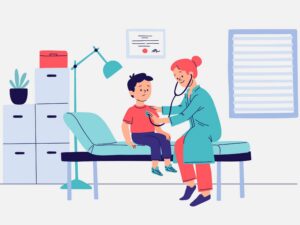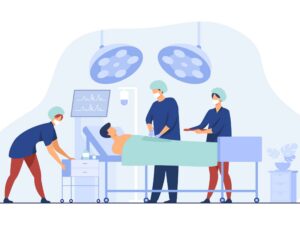Community medicine
- Description
- Curriculum
- Reviews

Course Overview:
The Community Medicine (Preventive and Social Medicine – PSM) course focuses on the health of populations and communities rather than individual patients. It equips learners with the knowledge and skills to prevent diseases, promote health, and manage public health programs.
This course bridges clinical medicine and public health, emphasizing epidemiology, biostatistics, environmental health, health education, and national health programs. Learners will gain the ability to apply scientific principles to improve community health and strengthen the healthcare delivery system.
Key Topics Covered:
Foundations of Community Medicine:
-
Concepts of Health, Disease, and Prevention
-
Natural History of Disease and Levels of Prevention
-
Epidemiology: Definition, Uses, and Study Designs
-
Screening for Diseases and Surveillance Systems
-
Biostatistics: Data, Sampling, and Statistical Tests
Environmental and Occupational Health:
-
Water, Air, and Waste Management
-
Vector Control and Zoonotic Diseases
-
Occupational Hazards and Industrial Health
Nutrition and Health:
-
Balanced Diet, Malnutrition, and Nutritional Programs
-
Food Safety and Food-borne Diseases
Family and Reproductive Health:
-
Maternal and Child Health (MCH)
-
Reproductive and Adolescent Health
-
Family Planning and Contraceptive Methods
Communicable and Non-Communicable Diseases:
-
Epidemiology, Control, and Eradication Programs
-
Emerging and Re-emerging Infections
-
Lifestyle Diseases and Preventive Strategies
Health Programs and Administration:
-
National Health Programs and Policies
-
Health Planning, Management, and Evaluation
-
Health Care Delivery System in India
-
International Health and WHO Initiatives
Learning Outcomes:
By the end of this course, students will be able to:
-
Explain key concepts in epidemiology and public health.
-
Analyze health data using basic biostatistics.
-
Plan and evaluate disease prevention and control programs.
-
Understand environmental, nutritional, and occupational health issues.
-
Apply community medicine principles in field visits, surveys, and health education.
Who Should Enroll:
-
MBBS, BDS, Nursing, and Paramedical Students
-
TNPSC Medical, NEET PG, and INICET Aspirants
-
Public Health Professionals and NGO Workers
-
Anyone interested in healthcare systems and preventive medicine
Course Features:
-
Concept-based Video Lectures and Field Demonstrations
-
Epidemiology Charts and National Program Summaries
-
Topic-wise Notes and MCQs
-
Case Studies and Health Data Exercises
-
Certificate of Completion



